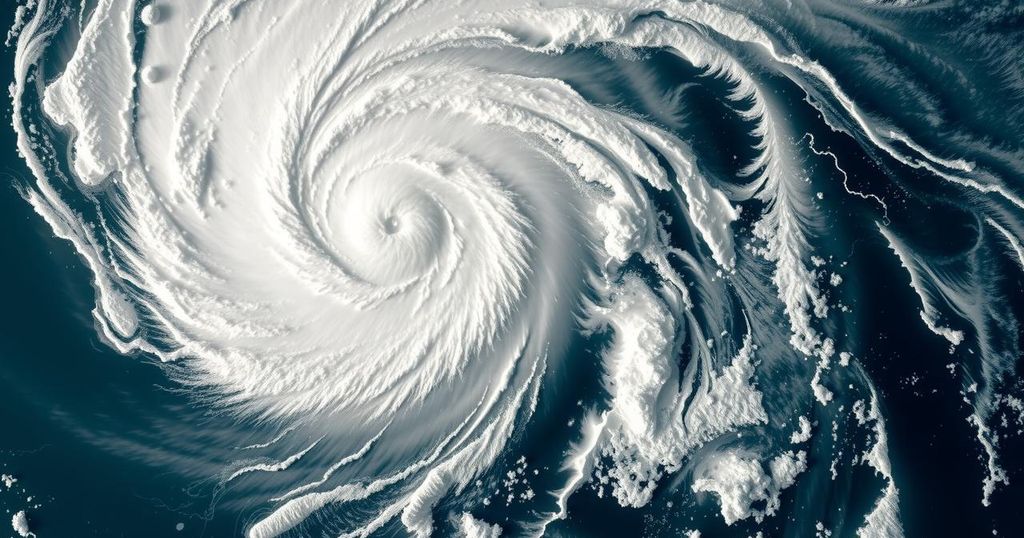World news
AFRICA, AGENCE FRANCE - PRESSE, ASIA, BIEUVILLE, CHI, CLIMATE CHANGE, COGIC, DI, EMERGENCY RESPONSE, EUROPEAN CIVIL PROTECTION AND, EUROPEAN CIVIL PROTECTION AND HUMANITARIAN AID OPERATIONS, FRANCE24, FRANCOIS - XAVIER BIEU, INDONESIA, INTER, INTERDEPARTMENTAL CRISIS MANAGEMENT OPERATIONAL CENTRE, MANUEL VALLS, MAYOTTE, MBOUINI, NATURAL DISASTER, NATURAL DISASTERS, OVERSEAS TERRITORIES, SOUTHERN INDIAN OCEAN
Lena Nguyen
0 Comments
Cyclone Dikeledi Hits Mayotte and Madagascar: A Humanitarian Crisis Looms
Tropical Cyclone Dikeledi has devastated parts of Madagascar and Mayotte, causing at least three fatalities and displacing thousands. The cyclone, which struck shortly after Cyclone Chido, led to flash floods and infrastructural damage in various regions, with ongoing humanitarian efforts to assist affected households expected to continue amidst further storm threats.
Tropical Cyclone Dikeledi has devastated parts of southeastern Africa, resulting in significant loss of life and widespread displacement. At least three individuals have reportedly died in Madagascar due to the storm, which brought heavy rains and severe flooding this past weekend. In the French territory of Mayotte, the storm struck less than a month after Cyclone Chido, which had already caused considerable destruction and fatalities in the region.
Cyclone Dikeledi originated in the Southern Indian Ocean, maturing between Indonesia and Australia before striking northern Madagascar on January 11. Reports indicate that over 15,000 people have been displaced across northern Madagascar, while approximately 20,000 residents in Mayotte were compelled to evacuate their residences. Despite a slight weakening of the cyclone as it approached Mayotte, the area experienced hazardous conditions including strong winds and landslides, further exacerbating the already vulnerable state of local infrastructure.
In Mbouini, a village that had survived Cyclone Chido, residents faced flooding due to the recent storm’s rains. A local resident, Massa, expressed distress over the ongoing storms: “We’re only in the middle of the rainy season, so we don’t know what’s going to happen between now and February or March.” Furthermore, Manuel Valls, the French minister for overseas territories, emphasized the intense impact of Dikeledi on Mayotte, referring to the effects of the storm as “violent.” At this time, no casualties have been reported in Mayotte due to Dikeledi.
The Prefect of Mayotte, Francois-Xavier Bieuville, stated that the territory remains highly susceptible to weather disturbances, highlighting the continuing threat posed by strong winds and rainfall. The European Civil Protection and Humanitarian Aid Operations (ECHO Flash) has indicated that Cyclone Dikeledi is anticipated to further intensify, prompting warnings of significant rainfall, powerful winds, and potential storm surges in the coming days across Madagascar, Mayotte, Comoros, and Mozambique.
The aftermath of Cyclone Chido underscores the vulnerability of these communities, where many residents live in shantytowns constructed from inadequate materials. The United Nations Office for the Coordination of Humanitarian Affairs (OCHA) has reported ongoing response efforts in Madagascar, with emergency supplies and financial assistance already being distributed to affected households.
Tropical cyclones pose a significant threat to the coastal regions of Africa, particularly during the rainy season. The Indian Ocean is a hotspot for such storms, which can lead to severe weather patterns, including heavy rainfall, flooding, and loss of life. The recent history of cyclonic activity in the region, notably Cyclone Chido, highlights the vulnerabilities faced by populations living in precarious housing situations. Humanitarian efforts often respond post-cyclone to mitigate the impacts on displaced populations and restore infrastructure.
In summary, Tropical Cyclone Dikeledi has created additional hardships for the already afflicted communities of Madagascar and Mayotte, following the chaos caused by Cyclone Chido. The ongoing threats of extreme weather highlight the region’s vulnerability and the urgent need for effective humanitarian interventions. As Dikeledi is predicted to strengthen, continued vigilance and response efforts are essential to safeguard the impacted populations and mitigate further damage.
Original Source: news.mongabay.com




Post Comment